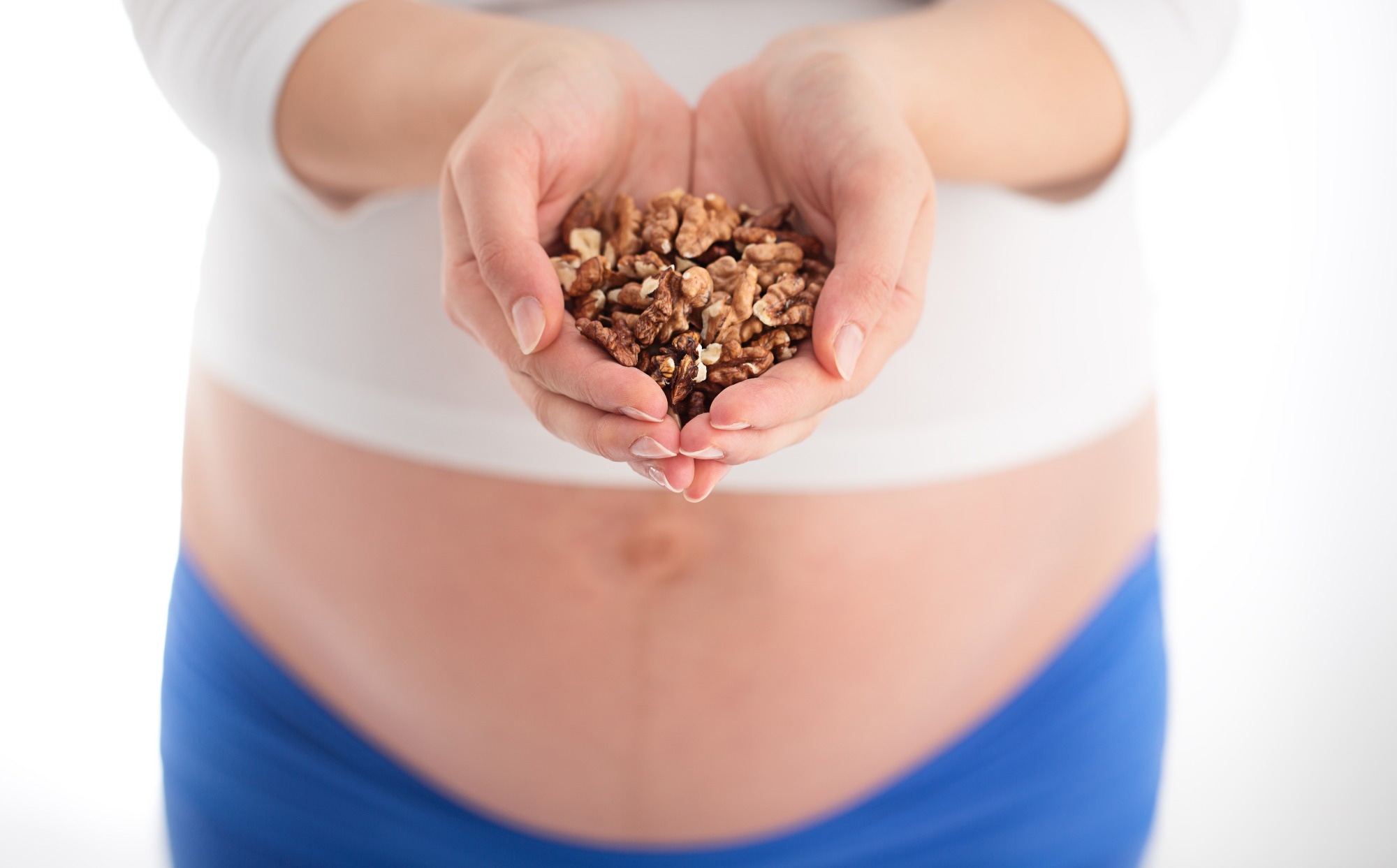A research has just lately been performed on 5-year-old Japanese youngsters to judge the impression of maternal consumption of nuts throughout being pregnant on the chance of childhood behavioral issues.
The research is revealed within the Journal of Pediatric Gastroenterology and Diet.
 Research: Nut consumption throughout being pregnant is related to decreased threat of peer issues in 5-year-old Japanese youngsters. Picture Credit score: Valentin Valkov / Shutterstock
Research: Nut consumption throughout being pregnant is related to decreased threat of peer issues in 5-year-old Japanese youngsters. Picture Credit score: Valentin Valkov / Shutterstock
Background
Nuts are extremely nutritious meals wealthy in mono- and polyunsaturated fatty acids, proteins, and dietary fiber. They’re additionally a wealthy supply of nutritional vitamins, together with folate, niacin, tocopherol, and vitamin B6, in addition to minerals, reminiscent of calcium, potassium, and magnesium. These macro- and micronutrients are recognized to have a number of well being advantages.
In Japan, the Kyushu Okinawa Maternal and Little one Well being Research (KOMCHS) has reported {that a} increased maternal consumption of vitamin B6 and calcium is related to a decrease threat of emotional issues in 5-year-old Japanese youngsters. Equally, increased maternal consumption of monounsaturated fatty acids, alpha-linolenic acid, and linoleic acid throughout being pregnant has been discovered to cut back the chance of childhood emotional issues.
Kids born to moms who devour vitamin C, vitamin B6, calcium, and magnesium throughout being pregnant have been discovered to have a decreased threat of hyperactivity issues. Equally, an inverse affiliation has been noticed between maternal folate consumption, vitamin B6, and vitamin C throughout being pregnant and childhood social behavioral issues.
Within the present research, scientists have analyzed the info obtained from the KOMCHS to find out the connection between maternal consumption of nuts throughout being pregnant and the chance of childhood behavioral issues.
Research design
The KOMCHS is a multipurpose pre-birth cohort research performed on pregnant Japanese ladies between April 2007 and March 2008. The individuals took half in eight surveys and accomplished self-administered questionnaires.
The questionnaires have been designed to gather data on maternal sociodemographic traits, pregnancy-related queries, maternal dietary habits, toddler intercourse, date of delivery, delivery weight, and kids’s behavioral issues.
Necessary observations
The present research inhabitants included a complete of 1,199 mother-child pairs. The evaluation of childhood behavioral issues revealed that about 12.9%, 19.4%, 13.1%, 8.6%, and 29.2% of youngsters aged 59 to 71 months expertise emotional issues, conduct issues, hyperactivity issues, peer issues, and social behavioral issues, respectively.
A complete of 618 moms reported consumption of nuts throughout being pregnant. Amongst them, the common consumption was 0.8 grams of nuts per day. The proportions of consumption of peanuts, different varieties of nuts, and each peanuts and different varieties of nuts have been 36.2%, 27.3%, and 36.4%, respectively.
Moms who consumed nuts throughout being pregnant have been extra more likely to be older and had the next consumption of whole power and citrus fruits than those that had not consumed nuts throughout being pregnant.
The evaluation performed after adjusting for potential dietary and non-dietary confounders revealed that youngsters born to moms who had consumed nuts throughout being pregnant have a considerably decrease threat of peer issues. Nonetheless, no such affiliation was noticed for different examined childhood behavioral issues.
A sensitivity evaluation performed on moms with high and low nut intakes revealed that the decrease threat of childhood peer issues noticed within the research doesn’t depend upon the quantity of nut consumption throughout being pregnant.
Research significance
The research finds that maternal consumption of nuts throughout being pregnant reduces the chance of peer issues in 5-year-old Japanese youngsters.
The scientists thought-about a number of dietary (citrus fruits, cow milk, whole fruits, whole greens, and whole soy merchandise) and non-dietary (maternal age, gestation, maternal sociodemographic options, maternal smoking and alcohol consumption habits, breastfeeding length, and toddler’s intercourse and delivery weight) confounding elements within the research. Nonetheless, they point out that the presence of residual confounders can’t be ignored.
The food plan historical past questionnaires used for dietary evaluation may solely present approximate consumption. Furthermore, the individuals accomplished these questionnaires someplace between weeks 5 and 39 of being pregnant. Thus, any adjustments within the proportion of nut consumption all through the being pregnant could affect the noticed affiliation.
Because the scientists talked about, future research are wanted to grasp the mechanistic connection between maternal nut consumption throughout being pregnant and childhood behavioral issues.


